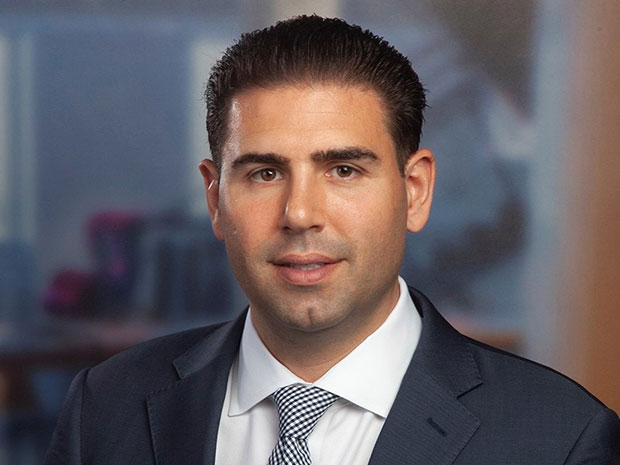Family offices have patient capital focused on long-term appreciation and protection from macroeconomic volatility.
Key takeaways
With traditional capital channels constrained, family offices have a unique opportunity to serve as real estate sponsors.
Family offices seek real estate advisors with a track record of sustained success to mitigate risk.
Family offices are gaining prominence as alternative capital sources for many real estate organizations as institutional investors pull back to firm up their balance sheets amid continued uncertainty over interest rates and capital market risk. With traditional channels constrained—highlighted by a significant decrease in the number of new funds and aggregate capital raised—family offices have a unique opportunity to serve as a new type of investment partner to real estate firms by providing flexible funding in the form of rescue capital, bridge lending and private debt solutions.
Family offices have boomed over the past two decades, partly because of surging fortunes across technology, finance and real estate. As they look to grow and preserve their wealth, many have set their sights on real estate as a preferred alternative investment option.
Family offices’ love for the real estate asset class is primarily driven by three factors: tax-advantaged investing, wealth protection from macroeconomic volatility, and long-term wealth appreciation and preservation. In turn, the real estate industry has welcomed family office investors and has adapted to their need for transparent reporting and flexible structures. In the current environment of high inflation and elevated interest rates that has disrupted capital markets, real estate developers and funds are leaning on family office capital and creating opportunities for direct investment, in the form of co-general partner (co-GP) investment positions that allow for more favorable profit allocations.
TAX TREND: Benefits for family offices
Family offices generally are more tax-sensitive than other types of investors, such as foundations and pension funds. The upside is family offices can realize certain tax benefits, such as depreciation and, if investing in a qualified opportunity zone, deferred capital gains taxes.
A family office looking to maximize depreciation can often see its options more clearly with help of a cost segregation analysis designed to properly classify assets. Rather than depreciating a building over 39 years, the components might be segregated and the respective tax treatment applied separately to accelerate depreciation.
The FINTRX Private Wealth Data Report, published in May, identified real estate as a favored asset class among the 150 new family offices added to their database. A major reason is that real estate investments are generally flexible and with proper planning can meet the needs of many family offices, even allowing investment through private family foundations.
Family office participation in the real estate capital market is growing. According to FINTRX, 19.8% of the wealth held by the North American family offices listed in the company’s database is classified as real estate. Family offices value real estate knowledge, and many have hired prestigious high-performing managers for in-house roles heading ground-up development, direct investing and real estate fund creation as an embedded business strategy.
Moreover, families with extensive backgrounds in real estate have become sponsors of other family offices and ultrahigh net worth individuals looking to invest directly in projects and share in the risk, in exchange for appealing co-GP economics not customarily available in the market. Usually, these arrangements are based on financial transparency, sharing of control, and flexibility in holding periods to allow patient capital to find a home.
How the market is evolving
Going forward, family offices that focus on real estate will likely become more selective about their investment partner relationships, and successful track records will be critical. When interest rates were near zero, many real estate investments were deemed impossible to fail; however, as markets shift, investment decisions have become more complex. Navigating today’s rapidly evolving economic environment and its potential impact on real estate investing requires extensive market and industry knowledge and may call for engaging a professional advisor.
The May 2023 Financial Stability Report from the U.S. Federal Reserve highlights the concerns over interest rate risk and the impact that declines in fair value have had on the banking sector, so it is no surprise that lending has had a major impact on real estate. As credit tightens, an increasing number of family offices have been offered appealing investment opportunities for private lending, rescue capital and bridge financing. Often the investment can be structured as debt or equity, depending on the tax advantages available. As families expand their relationships with real estate funds and operators, lending opportunities will continue to grow.
CONSULTING INSIGHT: Financial due diligence
Every M&A transaction presents opportunities and risks that only due diligence can reveal. A failure to uncover this information puts both a potential deal and investors at risk. Learn more about RSM’s financial due diligence services.
Between November 2022 and January 2023, BlackRock partnered with Illuminas to survey 120 single-family offices that collectively oversee $243 billion of assets. The resulting Global Family Office Report, published in May 2023, showed 63% of investments allocated to real estate, of which 86% met or exceeded performance expectations in the previous 12 to 24 months. When asked about expected changes to asset allocations in 2023 in light of significant policy initiatives such as the U.S. Inflation Reduction Act and the European Commission’s Green Deal Industrial Plan, respondents were bullish toward infrastructure with confidence remaining strong in real estate.
The outlook
As historical capital and lending channels become more constrained, the industry will be forced to consider new sources of capital, and family offices are well positioned to seize this opportunity. Family offices sitting on historic levels of cash and Treasurys are looking for the right opportunity to enter the distressed market. The next 12 months will be about strategic industry relationships and understanding the market opportunities.
Significant risks will continue through 2023, including inflation, elevated interest rates, geopolitical tension, and the recessionary possibility at home and abroad. Operating in an environment unseen for the last few decades, family offices must prioritize finding real estate advisors with a track record of sustained success to manage all the outlined risks. Fortunately, family offices have the benefit of patient capital, allowing them more time to diligently conclude on investment strategies in uncertain markets.



